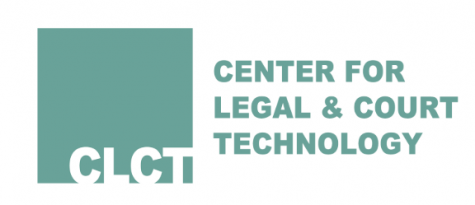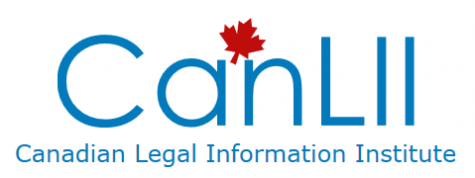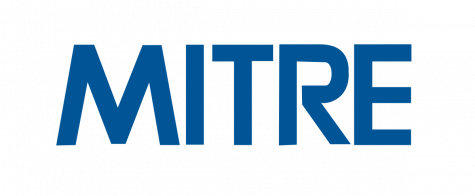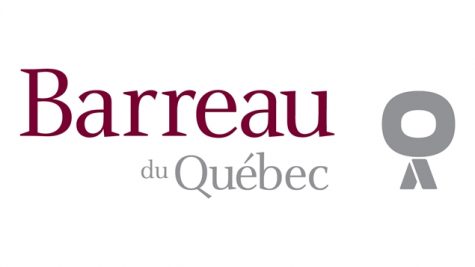Début – 2018 | Fin – 2024
Durée – 6 ans
L’élaboration d’outils décisionnels fait l’objet de plusieurs modèles abstraits. Tant leur mise en œuvre expérimentale que leur évaluation pratique se heurte aux réticences des personnes qui ont compétences pour dire le droit. Des efforts de transparence et de pédagogie sont nécessaires pour garantir l’intérêt et la fiabilité de ces outils, ce qui implique d’examiner les techniques d’aide à la décision déjà existantes.

Chef de chantier
Fredric Lederer
Activités de recherche
Études de cas
Les solutions de prédiction de l’IA en usage réel (et de préférence généralisé) seront prises en compte dans les études de cas. À l’heure actuelle, au moins l’un d’entre eux, COMPAS, utilisé en ce moment aux États-Unis pour la mise en liberté avant procès et la détermination de la peine, mérite une étude.
Inventaires
L’objectif est de déterminer dans quelle mesure les prédictions de l’IA sont maintenant utilisées dans les professions juridiques. Ces prévisions sont en cours d’élaboration ou bien sérieusement envisagées. La recherche initiale a permis d’identifier 93 potentielles « solutions » destinées à aider les professionnels du droit.
Guide des meilleures pratiques
Le groupe de ce Chantier travaillera à la production d’un guide des meilleures pratiques conçu de manière à obtenir des résultats fiables tout en protégeant les droits légaux et en réduisant au minimum la responsabilité légale.
Cadre de gouvernance
Le groupe étudiera la création et l’application de principes généraux à utiliser pour déterminer si, et comment, les organisations gouvernementales, y compris les tribunaux et organismes d’arbitrage devraient utiliser les prédictions par IA.
Publication des chercheurs
- Fredric LEDERER, « Here There Be Dragons – The Likely Interaction of Judges with the Artificial Intelligence Ecosystem », (2020) Vol 59 – No 1 The Judges Journal ; American Bar Association | Judicial Division.
- L. Karl BRANTING, Alexander YEH, Brandy WEISS, Elizabeth MERKHOFER, Bradford BROWN, « Inducing Predictive Models for Decision Support in Administrative Adjudication », (2018) No. 10791, AI Approaches to the Complexity of Legal Systems, Lecture Notes in Computer Science.
- L. Karl BRANTING, Lisa FERRO, John ABERDEEN, Craig PFEIFER, Bradford BROWN, Mark PFAFF, Brandy WEISS, Bill LIAO, « Scalable and Explainable Legal Prediction », (2020) No. 24, Artificial Intelligence and Law, Springer, 1-26.
- Luisa DAMIANO, Paul DUMOUCHEL, « Anthropomorphism in Human–Robot Co-evolution », (2018) No. 9, Frontiers in Psychology, 468, DOI : 10.3389/fpsyg.2018.00468.
- Hannes WESTERMANN, Jaromír ŠAVELKA, Vern R. WALKER, Kevin D. ASHLEY, Karim BENYEKHLEF, « Computer-Assisted Creation of Boolean Search Rules for Text Classification in the Legal Domain », (déc. 2019), In JURIX, pp. 123-132.
- Nicolas GARNEAU, Eve GAUMOND, Pierre-Luc DÉZIEL, R. KHOURY, Luc LAMONTAGNE, « CriminalBART: A French Canadian Legal Language Model Specialized in Criminal Law », ICAIL 2021, 5 février 2021 (submitted).
- Marco GIACALONE, Sajedeh SALEHI, « Conflict Resolution with Equitative Algorithms: A Tool to Establish a European Common Ground of Available Rights », in The European Common Ground of Available Rights, edited by F. Romeo, S. Martuccelli, M. Giacalone, Ed. Scientifica Napoli, 2019.
- Francesco ROMEO, Marco GIACALONE, Marco DALL’AGLIO, « CREA Project – Conflict Resolution Equitative », Jusletter IT – The Magazine for IT and Law, (2018).
- Marco GIACALONE, Ronald P. LOUI, « Dispute Resolution with Arguments over Milestones: Changing the Representation to Facilitate Changing the Focus », Jusletter IT – The Magazine for IT and Law, (2018).
- Iria GIUFFRIDA, Fredric I. LEDERER, Nicolas VERMEYS, « A Legal Perspective on the Trials and Tribulations of AI, How Artificial Intelligence, the Internet of Things, Smart Contracts and Other Technologies Will Affect the Law », (2018) No. 68, Case Western Reserve Law Review, 747.
- Giampiero LUPO, « Regulating (Artificial) Intelligence in Justice: How Normative Frameworks Protect Citizens from the Risks Related to AI Use in the Judiciary », (2019) No. 8-2, European Quarterly of Political Attitudes and Mentalities, 75.
- Jena MCGILL, Amy SALYZYN, « Judging by Numbers: How will Judicial Analytics Impact the Justice System and its Stakeholders? », (2021) No. 44-1, Dalhousie Law Journal (forthcoming).
- Ali SADEGHIAN, Laksshman SUNDARAM, Daisy Zhe WANG, William F. HAMILTON, Karl BRANTING, Craig PFEIFER, « Semantic Edge Labeling over Legal Citation Graphs », (2018) 26(2) Artificial Intelligence and Law, Springer, 127-144.
- Huihui XU, Kevin ASHLEY, « Argumentative segmentation enhancement for legal summarization », Proceedings Sixth Workshop on Automated Semantic Analysis of Information in Legal Text, 2023.
- Juliano RABELO, Mi-Young KIM, Randy GOEBEL, Masaharu YOSHIOKA, Yoshinobu KANO et Ken SATOH, « COLIEE: Competition for Legal Information Extraction and Entailment », (2020) 35-3 Journal of Japanese Society of Artificial Intelligence 377.
- Marco GIACALONE et Fabrizio CORONA, « L’evoluzione storica delle ODR: dall’Emoticon ai sistemi Fair Division », (2019) Special issue, I-Lex.
- Fredric I. LEDERER, « Thoughts on Remote Appearances and Virtual Hearings, An Essay for the CLCT Court Affiliates », (2020) National Center for State Courts.
Partenaires
 Partenaire universitaire |  Partenaire institutionnel | Partenaire institutionnel |
 Partenaire institutionnel | Partenaire institutionnel |  Partenaire industriel |
 Partenaire industriel |  Partenaire professionnel |
Ce contenu a été mis à jour le 23 août 2024 à 15 h 53 min.
